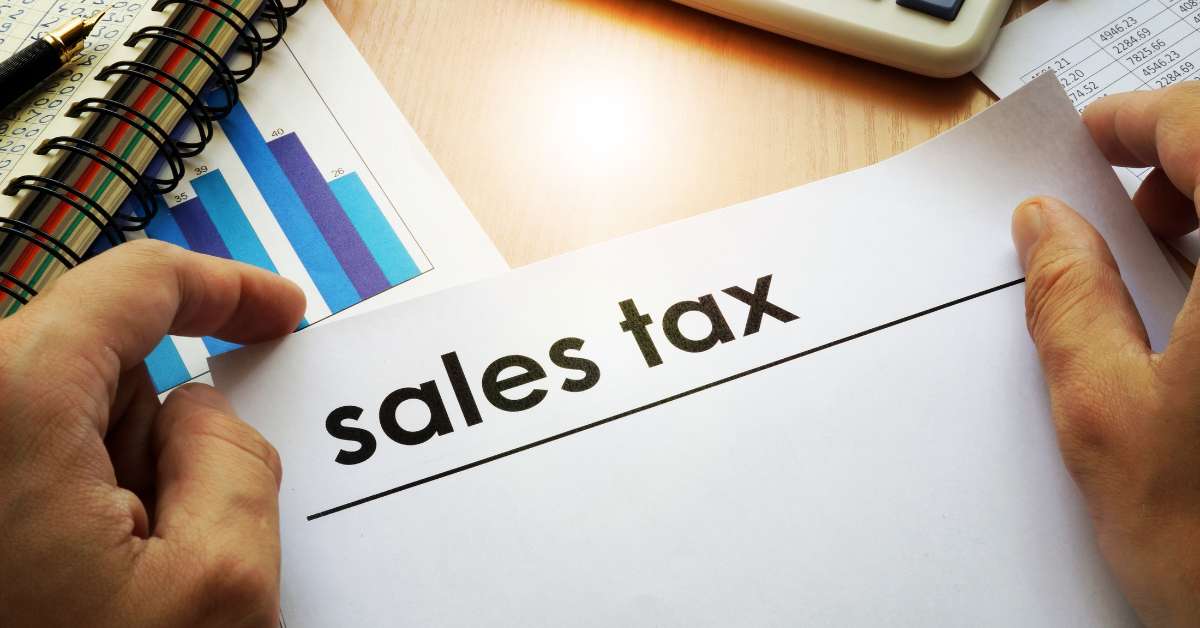Understanding Illinois’s sales tax is essential for business owners, whether you operate a physical storefront or engage in online sales. Complying with state and local tax regulations helps you avoid fines and keeps your business functioning effectively. Familiarizing yourself with Illinois's specific tax rates and requirements will aid in maintaining a compliant and successful business environment.
This guide delves into the details of Illinois sales tax, from initial registration procedures to available exemptions and the necessary filing requirements. By staying informed about the latest developments and guidelines, you can ensure your business remains in good standing with Illinois tax authorities.

What Is Taxable in Illinois?
In Illinois, most tangible personal property is subject to sales tax. However, certain items are exempt, including prescription and non-prescription medicines, most groceries, medical devices, newspapers, and magazines.
If your business sells taxable goods or services, you must collect and remit sales tax accordingly. It’s important to also consider use taxes for out-of-state purchases that were not taxed at the time of purchase.
Who Needs to Collect Sales Tax?
Businesses required to collect sales tax in Illinois include:
- Retailers that have a physical presence in Illinois
- Online sellers meeting the state’s economic nexus threshold
- Certain service providers depending on the service offered
Illinois employs an economic nexus threshold of $100,000 in sales or 200 transactions. Companies surpassing these limits, regardless of a physical presence in the state, are required to register and collect sales tax. Registering with doola’s Bookkeeping service helps in maintaining compliance and avoiding fines.
How to Register for a Sales Tax Permit in Illinois
Registering for a sales tax permit in Illinois involves the following steps:
- Collect essential documents: your EIN, business license, and business details.
- Visit the Illinois Department of Revenue website to access their registration portal.
- Submit the online application through MyTax Illinois.
- Obtain your Sales Tax License and begin collecting tax.
Collecting tax without a sales tax permit is illegal. Therefore, businesses must complete this process before initiating any taxable sales. doola’s expert bookkeeping team can assist in navigating this process, easing bureaucratic burdens while helping your business grow.
How to Calculate Sales Tax in Illinois
To calculate sales tax accurately, follow these guidelines:
Step 1:
Identify the correct sales tax rate based on the seller’s location and the location of the buyer.
Step 2:
Collect the corresponding amount at the sale point.
Step 3:
Maintain detailed records of all transactions.
Illinois mandates businesses to file sales tax returns monthly, quarterly, or annually, contingent upon the volume of sales. Ensure timely filings to avoid penalties.
Additionally, take note of the different sales tax rates in local jurisdictions, as these can vary and need to be implemented in your calculations.
Common Sales Tax Exemptions in Illinois
Some transactions in Illinois may qualify for sales tax exemptions, including:
- Purchases intended for resale (which requires a valid resale certificate)
- Sales to qualifying nonprofit organizations
- Certain purchases by manufacturers or in agriculture
Businesses must use the accurate exemption certificates and keep comprehensive records. Misapplication of these certificates can lead to audits and penalties.
Remote Seller and Marketplace Sales Tax Rules in Illinois
Remote sellers and marketplace facilitators like Amazon and Etsy are subject to specific sales tax obligations in Illinois.
The economic nexus threshold is set at $100,000 in sales or 200 transactions. Entities surpassing these levels must adhere to Illinois’ remote seller tax rules.
Illinois also requires marketplace facilitators to collect and remit sales tax on behalf of third-party sellers using their platforms.
What Triggers a Sales Tax Audit
The Illinois Department of Revenue may audit businesses due to various triggers, such as missing or incorrect tax filings, frequent delayed payments, discrepancies between declared sales and real revenue, as well as misuse of exemption certificates.
To minimize the risk of an audit, ensure to keep meticulous records of sales, exemptions, and tax payments. Conducting regular internal reviews is also highly advisable to ensure accuracy in tax reporting.
FAQs About Sales Tax in Illinois
Frequently asked questions about Illinois sales tax include the following:
Are digital goods taxable in Illinois?
Certain digital goods are subject to taxation; always verify with state guidelines.
Do out-of-state sellers need to collect Illinois sales tax?
Yes, if they meet the $100,000 or 200-transaction sales threshold.
What should I do if I overcharge or undercharge sales tax?
Refunds or payments to the state may be necessary, underscoring the importance of accurate recordkeeping.
Which services are taxable in Illinois?
While most services are not taxed, there are exceptions such as repairs and installation services.
Stay Compliant With doola
Navigating sales tax compliance doesn’t have to be challenging. Keeping well-informed and leveraging proper tools can safeguard against penalties and support seamless business operations.
doola offers vital guidance and resources to ensure compliance, aiding businesses in tax guidance, financial management, and bookkeeping.




